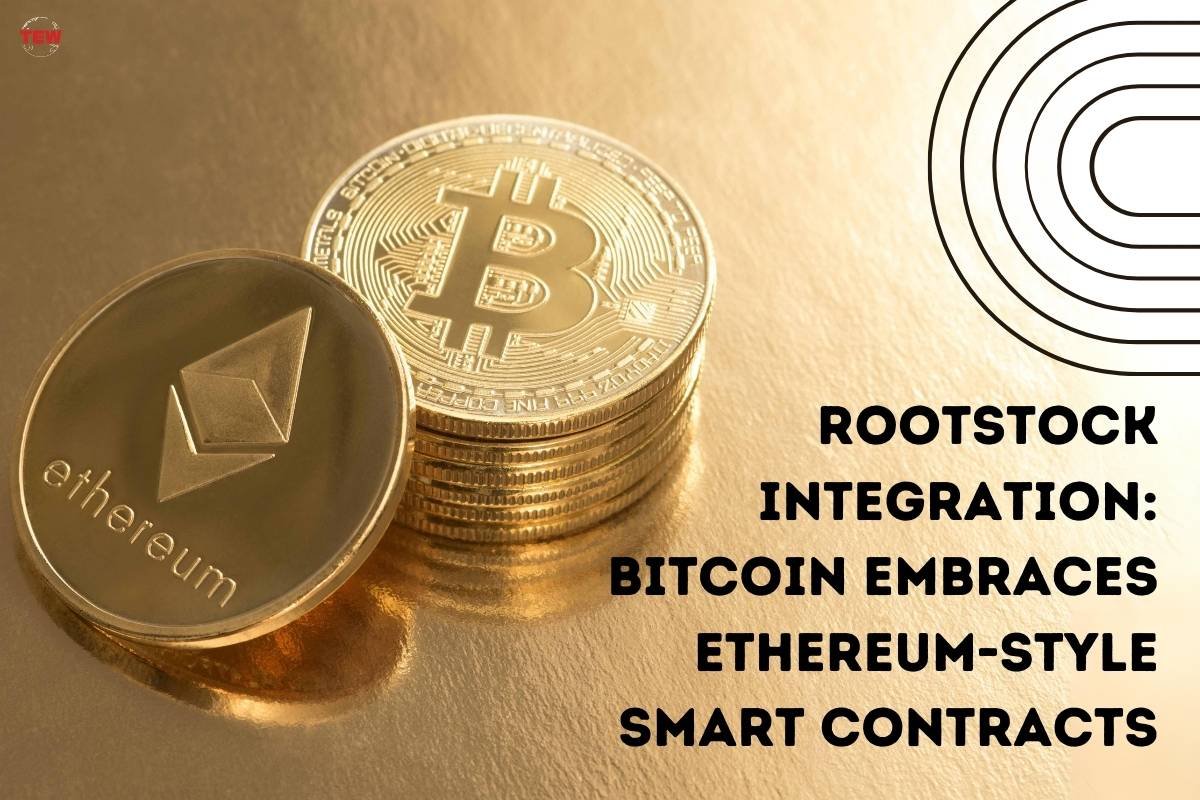Since its debut in 2009, blockchain technology, initially showcased by Bitcoin, has undergone significant evolution. Initially focused on facilitating peer-to-peer digital cash transactions, the blockchain landscape expanded remarkably with Ethereum’s introduction of Bitcoin smart contracts. These automated contracts have significantly broadened the scope of blockchain applications, extending beyond basic financial exchanges.
Furthermore, Bitcoin is now integrating smart contract capabilities similar to Ethereum through Rootstock (RSK), an initiative aimed at enhancing Bitcoin’s functionality with programmable features. If you are a beginner and are looking for an ideal platform for crypto, Immediate Peak is an excellent choice. The trading platform is an ideal charting and reporting tool designed to monitor and track the fluctuating prices and trading volumes of various online currencies and assets.
Understanding Bitcoin smart contracts
- Defining Smart Contracts
Smart contracts are self-executing agreements with predefined rules and conditions written into code. They automate the execution of contractual clauses, removing the need for intermediaries, reducing the potential for disputes, and increasing the efficiency of transactions.
- How Smart Contracts Work on the Ethereum Network
Ethereum, the pioneer of smart contract platforms, enables developers to create decentralized applications (DApps) by writing code that runs on its blockchain. Ether (ETH) serves as the fuel for executing these smart contracts.
- The Benefits of Smart Contracts

Smart contracts offer transparency, immutability, and trustlessness. They can be applied across various industries, including finance, supply chain management, and real estate, streamlining processes and reducing costs.
The Emergence of Rootstock
- What Is Rootstock (RSK)?
RSK is a smart contract platform that operates as a sidechain to the Bitcoin blockchain. It was created to provide Bitcoin with the same capabilities as Ethereum, including smart contract functionality and compatibility with Ethereum’s programming languages.
- RSK vs. Ethereum: A Comparative Analysis
While Ethereum and RSK share similarities, such as smart contracts, RSK offers certain advantages, like using Bitcoin as its native currency and benefiting from Bitcoin’s network security.
- RSK’s Unique Approach to Bitcoin smart contracts
RSK achieves compatibility with Ethereum by implementing the Ethereum Virtual Machine (EVM) and supporting Solidity, Ethereum’s smart contract programming language. This allows developers to migrate their Ethereum DApps to RSK with ease.
RSK’s Integration with Bitcoin

- The RSK-Bitcoin Bridge: Enabling Interoperability
RSK introduces a bridge that allows Bitcoin to be “wrapped” into a token called RBTC, which can then be used on the RSK network. This bridge enables the seamless transfer of value between the two networks.
- How RSK Addresses Scalability Challenges
RSK uses merge-mining, a process where Bitcoin miners can simultaneously mine on the RSK network, enhancing security and scalability. This approach leverages Bitcoin’s robust infrastructure.
- Security Measures in RSK-Bitcoin Integration
RSK’s security model is built on top of Bitcoin’s security, making it resistant to 51% attacks. The merge-mining process adds an extra layer of protection to the RSK network.
Use Cases and Applications
- DeFi on Bitcoin: Yield Farming, DEXs, and Lending
RSK enables decentralized finance (DeFi) applications on the Bitcoin network, allowing users to participate in yield farming, trade on decentralized exchanges (DEXs), and access lending platforms.
- Tokenization of Assets on the Bitcoin Network
RSK facilitates the creation of tokenized assets on the Bitcoin blockchain, including real estate, stocks, and other valuable assets. This opens up new opportunities for fractional ownership and liquidity.
- RSK-Powered NFTs: Enhancing Digital Ownership
Non-fungible tokens (NFTs) representing ownership of digital and physical assets can be minted on RSK. These NFTs enhance digital ownership and provenance tracking.
Challenges and Limitations
- Regulatory Considerations and Compliance
The integration of Bitcoin smart contractss on the network may raise regulatory concerns in some jurisdictions. Compliance and legal challenges need to be addressed to ensure the platform’s long-term viability.
- User Adoption and Network Effect
To compete with Ethereum, RSK needs to attract developers and users to its platform. Building a thriving ecosystem and achieving network effect is crucial for its success.
- Technical Hurdles and Potential Vulnerabilities
Like any blockchain project, RSK faces technical challenges and potential vulnerabilities. Continuous development and security audits are essential to mitigate risks.

The Future of Rootstock and Bitcoin
- RSK’s Roadmap and Upcoming Developments
RSK has an ambitious roadmap, with plans to further enhance its smart contract capabilities and integrate with the Lightning Network, potentially enabling faster and cheaper transactions on the Bitcoin network.
- Potential Impact on the Cryptocurrency Ecosystem
RSK’s success could reshape the cryptocurrency landscape, bridging the gap between Bitcoin’s store of value and Ethereum’s smart contract functionality. This integration may trigger new waves of innovation.
- Concluding Thoughts on Bitcoin’s Evolution
The integration of Bitcoin smart contracts through Rootstock marks a significant milestone in Bitcoin’s evolution. It not only expands Bitcoin’s utility but also demonstrates the adaptability and resilience of blockchain technology.
Conclusion
In conclusion, Rootstock’s integration with Bitcoin represents a groundbreaking step in the evolution of blockchain technology. By bringing Ethereum-style smart contracts to the Bitcoin network, Rootstock expands the functionality and utility of Bitcoin, offering new opportunities for innovation and financial empowerment.
This development showcases the adaptability and resilience of the cryptocurrency ecosystem, bridging the gap between Bitcoin’s store of value and the programmability of smart contracts. As we look ahead, the intersection of Bitcoin smart contracts holds immense potential, promising exciting possibilities for the future of decentralized finance and digital ownership.




